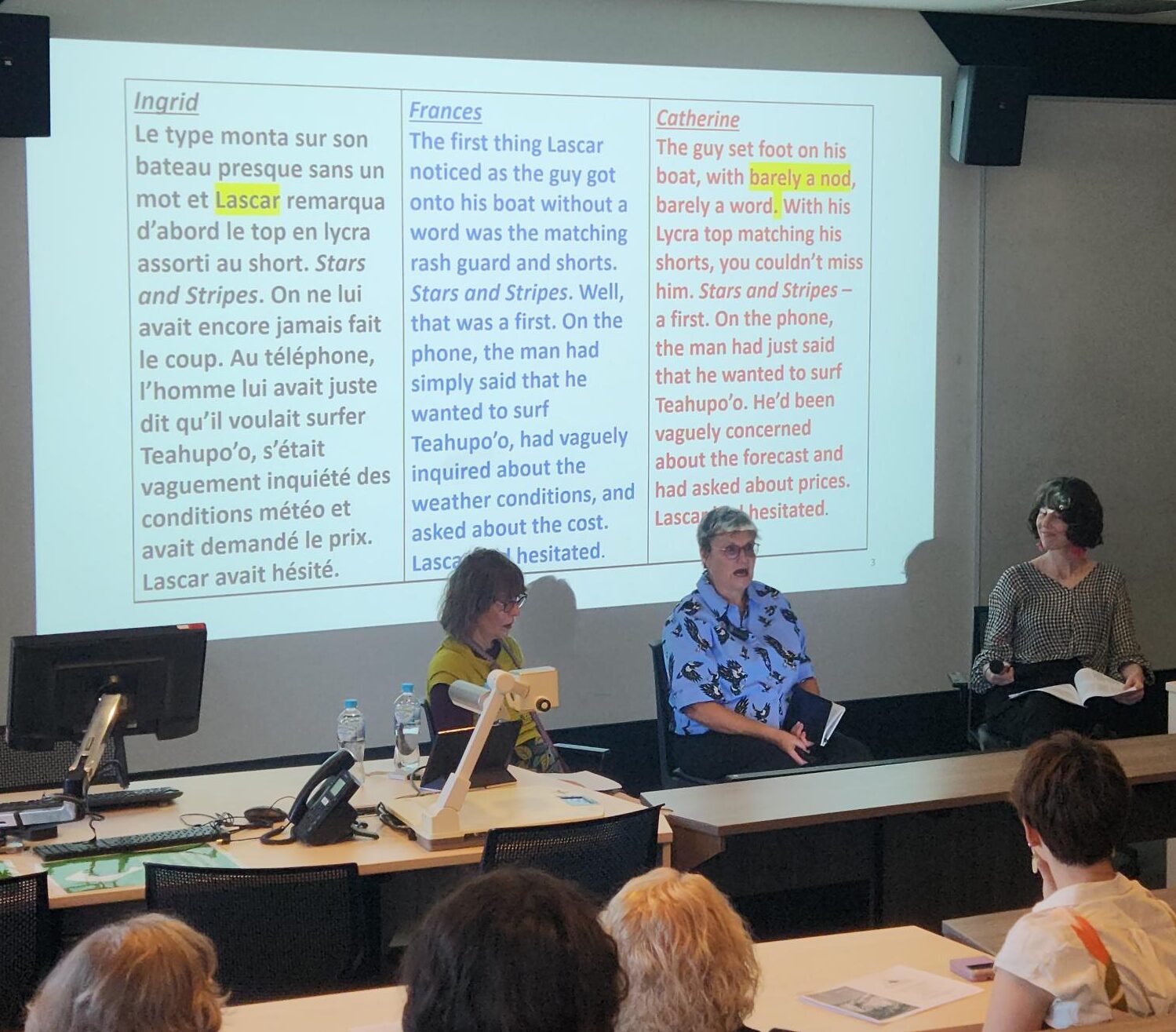LITERARY TRANSLATION
In what was probably a first for Australia, the Australian Association for Literary Translation (AALITRA) recently presented a ‘Literary Translation Slam’. One of the co-organisers, Elaine Lewis, explains what such an event entails.

A couple of years ago a French translator friend, Mireille Vignol, asked me to help her present a ‘literary translation joust’ here in Australia.
Mireille lived here for seventeen years, but now lives in France, and had already run some successful ‘joust’ events (‘joutes de traduction’), both there and in Tahiti.
The UK and the USA have adapted the idea to present ‘translation slams’.
The event finally rook place on 15 November, at RMIT in Melbourne. The room was full, and the audience of ninety included a number of members of ISFAR (the Institute for the Study of French–Australian Relations) and others with a particular interest in France and/or the French language, as well as some of Melbourne’s best-known writers and translators, plus lovers of reading, writing and translation.
The two ‘jousting’ literary translators were Catherine de Saint Phalle and Frances Egan, and the moderator was Mireille.
A month before the event, Catherine and Frances were given the same piece of text – an excerpt from the French novel La Vague (The Wave) by Ingrid Astier – to translate into English. Three weeks later the texts were sent to Mireille, who then prepared them for the event.

On the day, the audience could read the three versions side by side on a screen (they were also available as handouts). The moderator high-lighted dissimilar translations and the jousters defended their choices to the audience, who joined in with comments from time to time.
Mireille is known to readers of The French Australian Review (of which I’m an editor), as we published an interview with her in the last issue (number 74). She explained that the ‘literary joust’ was launched by the ALTF (L’Association des traducteurs littéraires de France / the Association of French literary translators).
As moderator of this Australian translation slam Mireille kept events moving, and asked pertinent questions which the translators endeavoured to answer as best they could.
Both translators were very open and gave considered answers, sometimes agreeing to differ. It was amazing to see the differences in the two translations, and their explanations of their choices and decisions – whilst entertaining and sometimes amusing – gave the audience some insights into the art of literary translation.
You can watch a recording of the event here, and (if you read French) find out more about literary jousts/slams here.
AALITRA would like to thank Assoc. Prof. Kerry Mullan, RMIT and ISFAR for their assistance.
The AALITRA Database of Australian Literary Translators is now live! This database is intended to help users easily find experienced Australian translators of literary texts.
Now based in Melbourne, Elaine Lewis began translating French poetry shortly after establishing the Australian Bookshop in Paris in 1996. Her book Left Bank Waltz was published by Random House Australia in 1996. She is currently a member of AALITRA, co-editor and book review editor of The French Australian Review, and a reviewer for The Music Trust’s e-zine Loudmouth.
AALITRA Translation Awards 2024

Focus language: French
Entries open: 28 February to 28 May
Categories: prose & poetry
Prizes: $500 (winners), $250 (runners-up)
Look out for more info here


